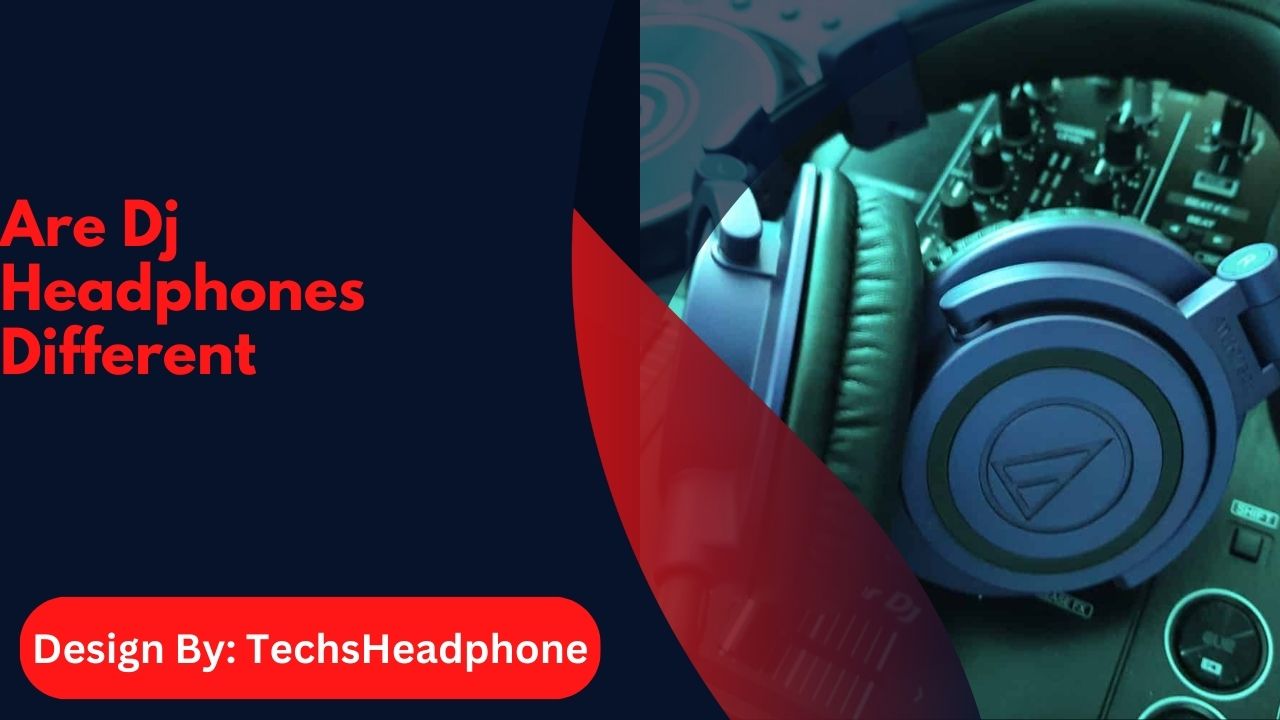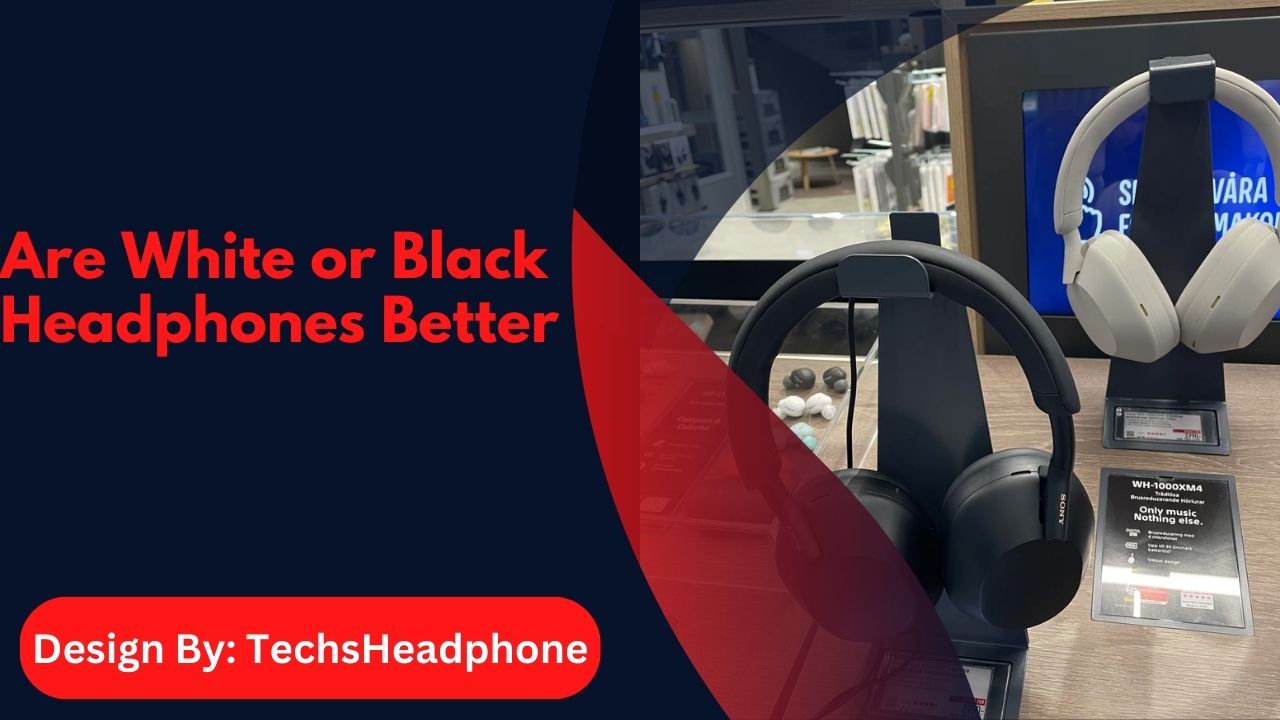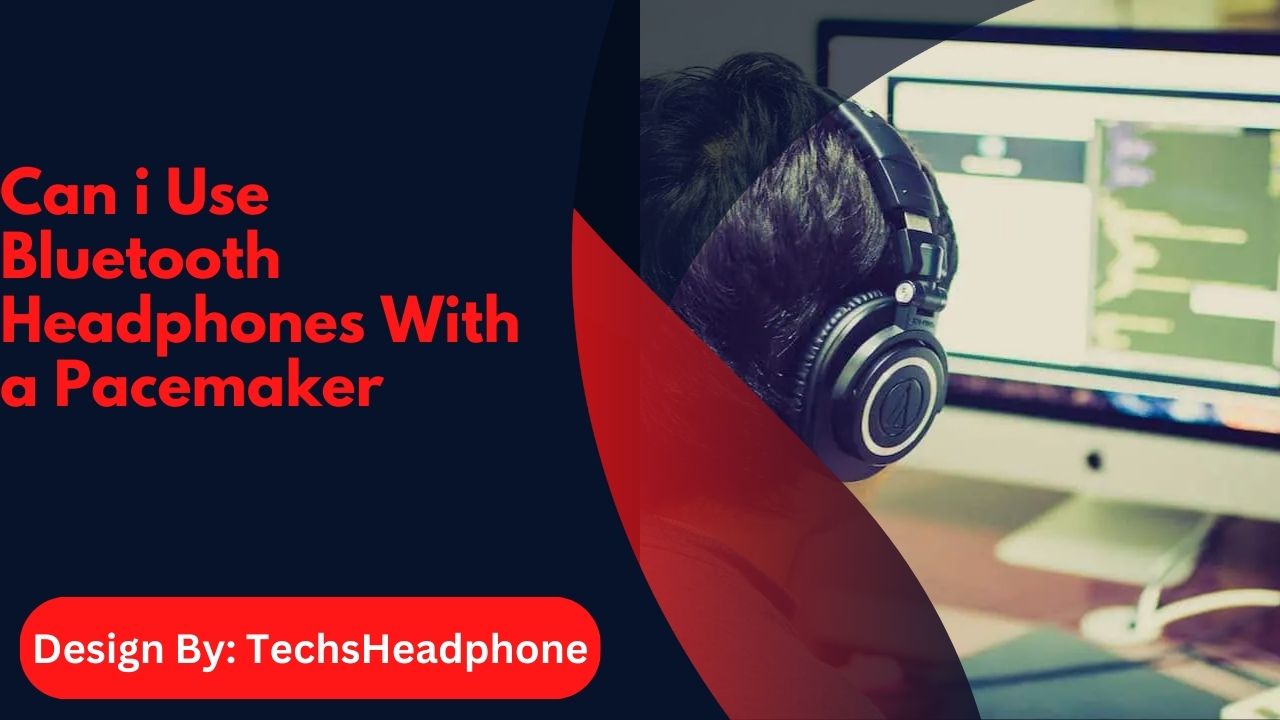DJ headphones are specifically designed to meet the unique needs of DJs, featuring enhanced bass response, sound isolation, and durability compared to regular headphones.
Open-Back vs. Closed-Back DJ Headphones:
When choosing DJ headphones, one of the primary decisions is between open-back and closed-back designs. Open-back headphones feature a design that allows air and sound to pass through the ear cups, creating a more natural and spacious sound.
This can enhance the listening experience, especially in quieter environments. However, open-back headphones offer less sound isolation, making them less suitable for noisy settings like clubs or festivals.
In contrast, closed-back headphones are designed to isolate sound, providing a focused listening experience that blocks out external noise. This makes them ideal for live performances where clarity and concentration are crucial.
Understanding these differences can help DJs select the right type of headphones based on their specific performance needs and environments.
Open-Back DJ Headphones:
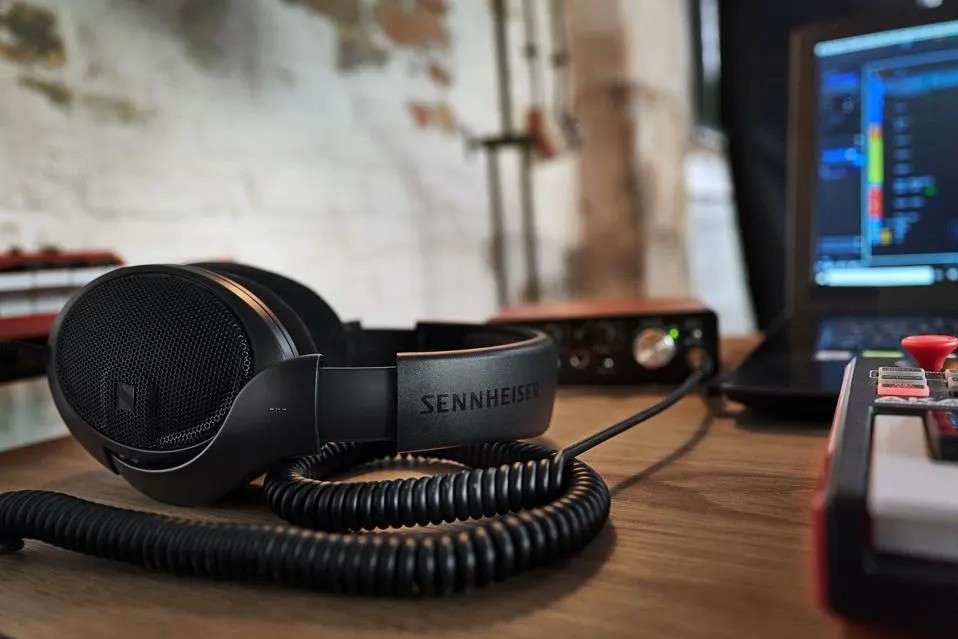
Open-back DJ headphones are characterized by their ear cups that are designed with perforations or vents, allowing sound to escape. This design results in a more natural soundstage, making them a popular choice for studio work or quieter settings.
DJs who prefer an airy and immersive listening experience may find open-back headphones appealing. They also tend to be more comfortable during long sessions, as they allow heat and moisture to dissipate.
However, the trade-off is that they provide minimal sound isolation, which can be problematic in loud environments. DJs may struggle to hear their mixes clearly, leading to potential errors in beatmatching or cueing.
Ultimately, while open-back headphones can enhance sound quality, they may not be the best choice for live performances in noisy venues.
Closed-Back DJ Headphones:
Closed-back DJ headphones are designed with sealed ear cups that effectively block external sounds, providing superior sound isolation. This feature is particularly beneficial for DJs performing in loud environments, such as clubs or festivals, where clarity is essential.
The closed design allows DJs to focus on their mixes without distraction, enabling precise beatmatching and cueing. Additionally, closed-back headphones often deliver a more pronounced bass response, which can enhance the overall listening experience.
However, they may cause heat buildup during extended use, potentially leading to discomfort. Despite this, many DJs prefer closed-back headphones for live performances due to their durability and ability to maintain sound quality in challenging environments. Choosing the right type ultimately depends on the specific needs and preferences of the DJ.
Wireless DJ Headphones: Convenience vs. Reliability
Wireless DJ headphones have gained popularity due to their convenience and freedom of movement. They eliminate the hassle of tangled cables, allowing DJs to move around freely during performances.
This can be particularly advantageous in dynamic settings where mobility is essential. However, the reliability of wireless headphones can be a concern. Issues such as battery life and potential latency can affect performance, especially if the headphones lose connection mid-set.
Additionally, some DJs may find that wireless options do not deliver the same sound quality as their wired counterparts. It’s essential to weigh the pros and cons of wireless headphones carefully.
For those who prioritize mobility and convenience, wireless headphones can be an excellent choice, provided they are high-quality and reliable.
Headphone Amplifiers: Enhancing Sound Quality
Using a headphone amplifier can significantly enhance the sound quality of DJ headphones. These devices boost the audio signal, providing clearer sound reproduction and improved dynamics.
For DJs, this means better clarity in the mix, allowing them to hear subtle details that may be lost with standard equipment. A headphone amplifier can also increase the volume without distortion, which is particularly useful in loud environments.
Many DJs find that the added power helps them achieve a more balanced sound, especially when using high-impedance headphones. While not every DJ will require an amplifier, those who prioritize sound quality and clarity may benefit from investing in one.
Ultimately, a headphone amplifier can elevate the listening experience, making it easier to deliver exceptional performances.
Choosing the Right Ear Pad Material:
The material of ear pads plays a crucial role in the comfort and sound quality of DJ headphones. Common materials include leather, pleather, and velour, each offering distinct advantages and disadvantages.
Leather and pleather ear pads tend to provide better sound isolation and a snug fit, making them ideal for live performances. However, they can cause heat buildup during extended use, leading to discomfort.
On the other hand, velour ear pads are known for their breathability and comfort, making them suitable for long sessions. While they may not isolate sound as effectively, they can enhance overall comfort.
DJs should consider their performance environment and personal preferences when selecting ear pad materials. The right choice can significantly impact both comfort and sound quality during performances.
Customizing Your DJ Headphones:
Customization is a key aspect of personalizing DJ headphones to suit individual preferences and styles. Many DJs opt to modify their headphones by changing ear pads, cables, or even the entire design.
For instance, swapping out standard ear pads for memory foam options can enhance comfort during long sets. Additionally, DJs can choose coiled or straight cables based on their performance needs, with coiled cables offering less tangling.
Some brands also allow for aesthetic customization, enabling DJs to choose colors or add personal logos. Customizing headphones not only enhances comfort and functionality but also allows DJs to express their unique style.
By investing time in customization, DJs can create a setup that feels personal and tailored to their specific needs.
Also read: Honda Odyssey Headphones not Working – A Step-by-Step Guide!
Headphone Accessories for DJs:
Investing in headphone accessories can greatly enhance the functionality and longevity of DJ headphones. Essential accessories include coiled cables, which reduce tangling and provide flexibility during performances.
An extension cable can also be beneficial, allowing DJs to connect to mixers or controllers from a distance. A protective case is crucial for transporting headphones safely, preventing damage during travel. Additionally, a headphone stand can keep equipment organized and easily accessible during gigs.
Some DJs may also benefit from a headphone splitter, allowing them to share audio with others during collaborative sessions.
By equipping themselves with the right accessories, DJs can ensure their headphones remain in optimal condition while enhancing their overall performance experience.
Headphone Hygiene: Keeping Your Gear Clean
Maintaining good hygiene with DJ headphones is essential for both performance quality and personal health. Over time, sweat, dirt, and oils from the skin can accumulate on ear pads and headbands, leading to unpleasant odors and potential skin irritation.
Regular cleaning is crucial to prolong the life of the headphones and ensure a comfortable fit. DJs should wipe down ear cups and headbands with a soft cloth and mild cleaning solution after each use.
Additionally, removing and washing removable ear pads can help maintain freshness. It’s also wise to store headphones in a clean, dry place to prevent dust accumulation.
By prioritizing hygiene, DJs can keep their gear in top shape, ensuring optimal performance and comfort during gigs.
Headphone Fit: Achieving the Perfect Seal
Achieving the perfect fit with DJ headphones is vital for optimal sound quality and isolation. A proper seal around the ears ensures that external noise is minimized, allowing DJs to focus on their mixes.
To achieve this, DJs should adjust the headband and ear cups to fit snugly without causing discomfort. It’s important to consider head size and shape, as not all headphones will fit every individual perfectly.
Some models come with adjustable features that can help achieve a better fit. Additionally, experimenting with different ear pad materials can enhance comfort and sound isolation.
A well-fitted pair of headphones not only improves sound quality but also contributes to a more enjoyable and focused performance experience.
Headphone Burn-In: Fact or Fiction
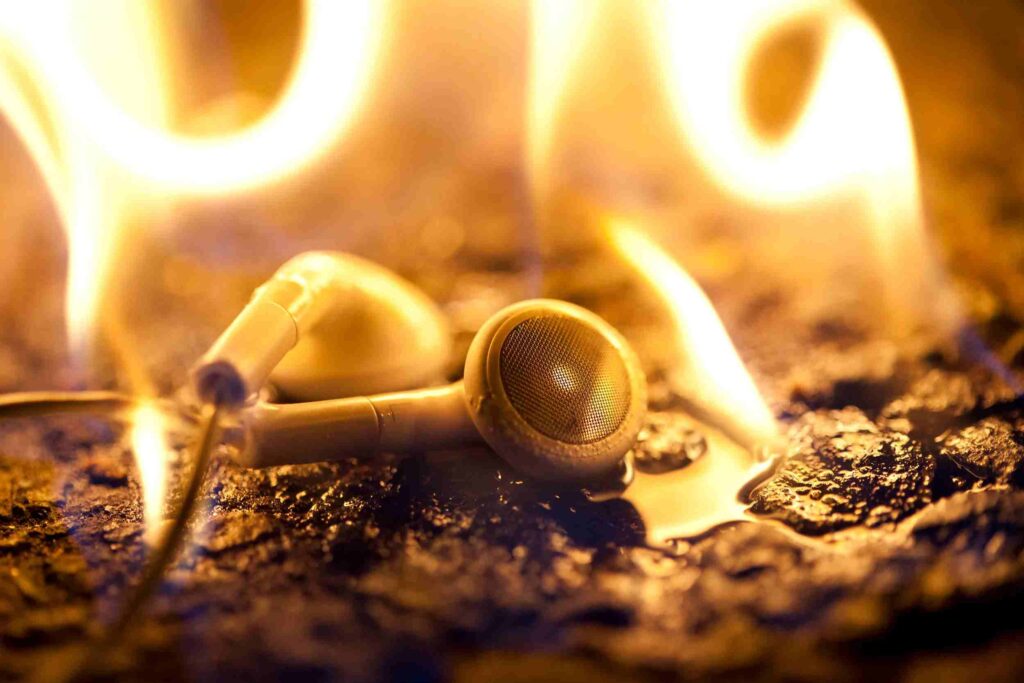
The concept of headphone burn-in refers to the idea that new headphones require a period of usage to reach their optimal sound quality. Some audiophiles believe that this process allows the drivers and components to settle, resulting in improved clarity and performance.
However, the scientific basis for headphone burn-in is debated among experts. Many manufacturers assert that headphones are ready to perform at their best right out of the box. While some users report perceivable differences after extended use, others find no significant change.
Ultimately, whether or not burn-in is a real phenomenon may depend on individual perceptions and preferences. DJs should focus on finding headphones that meet their needs from the start, regardless of burn-in theories.
Headphone Warranties and Support:
When investing in DJ headphones, considering warranty coverage and manufacturer support is essential. High-quality headphones can be a significant investment, and having a warranty can provide peace of mind in case of defects or damage.
Many reputable brands offer warranties ranging from one to three years, covering issues such as faulty components or workmanship. Additionally, responsive customer support can be invaluable if problems arise.
DJs should research brands known for their reliability and customer service, ensuring they have access to assistance when needed. Understanding warranty terms and conditions is also crucial, as some may not cover wear and tear from regular use.
By choosing headphones with solid warranty options, DJs can protect their investment and enjoy their gear with confidence.
FAQ’s:
1. What makes DJ headphones different from regular headphones?
DJ headphones are designed for enhanced bass response, sound isolation, and durability, catering specifically to the needs of DJs in loud environments.
2. Do I need special headphones for DJing?
While you can use regular headphones, DJ headphones provide better sound isolation and comfort, making them more suitable for live performances.
3. Are closed-back headphones better for DJing?
Yes, closed-back headphones are preferred for DJing as they provide better sound isolation, blocking out external noise.
4. What features should I look for in DJ headphones?
Key features include sound isolation, comfort, durability, detachable cables, and a swivel mechanism for easy monitoring.
5. Can DJ headphones be used for casual listening?
Yes, DJ headphones can be used for casual listening, but they are optimized for performance in noisy environments rather than everyday use.
Conclusion:
DJ headphones are designed with specific features that cater to the unique needs of DJs, setting them apart from regular headphones and studio monitors. Key differences include enhanced sound isolation, durability, bass response, and comfort for long performances. When selecting DJ headphones, look for models with swivel ear cups, coiled cables, high sensitivity, and replaceable parts.
